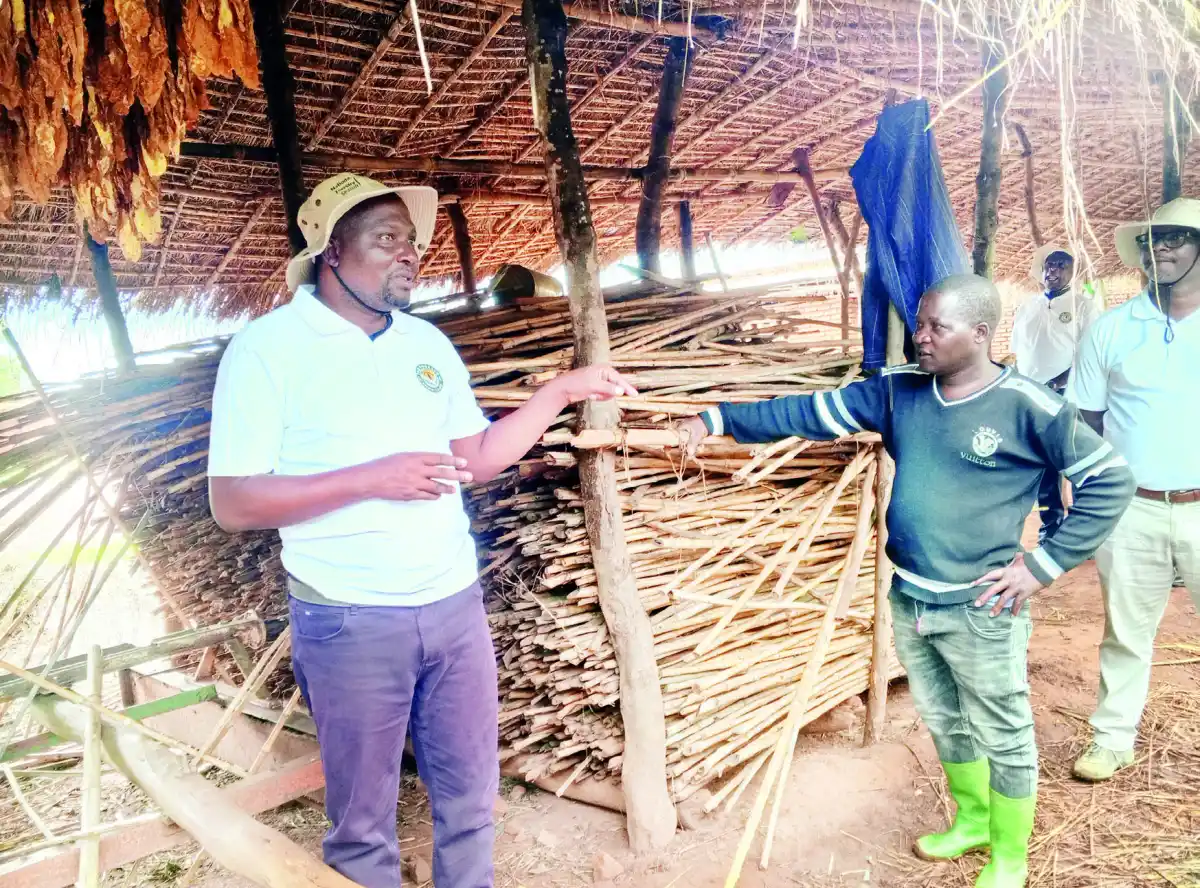

While other farmers have been crying foul over dry spells the country experienced this year, one tobacco farmer has shown that exploring other ways of caring for farmlands is crucial.
Luka Aaron from Mtata Village, Traditional Authority Mkukula, in Dowa District found irrigation to be an important aspect of his five-hectare farm, where he is growing tobacco.
Aaron’s mission started in November 2024 following the late onset of rains in the 2024- 25 growing season.
“I started irrigating the tobacco in November last year because it was taking time for the rains to start. As such, I started irrigating the tobacco, which made things easy for me at the farm.
“During the last growing season, dry spells affected my farm heavily, which led to low harvest. Learning from this, I thought it wise to start irrigating the crop, whereby we were digging holes in between the tobacco and pouring five litres of water,” he said.
The 49-year-old seasoned tobacco grower and father of five children was working with his tenants in fetching the water some two kilometres away from the farm.
“I was working with my five tenants in fetching for the water from Mbzazi River, where we were transporting it using my three-tonne lorry to the farm,” he said.
He invested K3 million in the initiative and other farm processes. He anticipates harvesting at least 80 bales of tobacco this year. Aaron’s is plucking the crop and storing it in live burns.
But dry spells remain one of the climate change-induced problems that continue to affect Malawi.
For example, thousands of farmers in the country were hit by El Nino conditions during the 2023-24 growing season.
On March 23 2024, President Lazarus Chakwera declared a state of disaster in 23 out of Malawi’s 28 districts that were affected by El Nino conditions.
This was characterised by late and erratic onset of rains, inadequate rains, floods and prolonged dry spells, which severely damaged crops and the prospects of food production.
A rapid assessment conducted by the Food and Agriculture Organisation of the United Nations in collaboration with the Ministry of Agriculture, the Malawi Vulnerability Assessment Committee, World Food Programme and the Department of Disaster Management Affairs(Dodma) in 10 districts in April 2024 revealed that 999,935 hectares of agricultural land were impacted by El Nino, resulting in approximately 509,361 tonnes of crop production loss.
“Cumulatively, the country is estimated to have lost crop produce valued at $283,205,551(K490, 909,807,411),” the report said.
But another tobacco farmer from Chimwaza Village, Traditional Authority Mponela, in Dowa District, David Dymon, said most farmers fail to engage in irrigation farming due to a lack of resources.
“The problem with us, medium-scale farmers, [is that] we are not able to buy farm equipment that we can use for irrigation but it is very important to engage in irrigation in the case of dry spells,” Dymon said.
He said his crop was lucky to have survived this year’s dry spells.
“It was by the grace of God that the time we were planting the tobacco, there was some rain; otherwise, it could have been affected if we had prolonged dry spells,” he said.
Dymon and Aaron were among farmers whose tobacco farms were inspected by Agriculture Deputy Minister Benedicto Chambo and officials from the Tobacco Commission (TC).
The visit was aimed at inspecting how tobacco farmers were faring ahead of the commencement of this year’s tobacco auctioning season.
Chambo said there was a need for collaboration between the government and private sector players to invest more in irrigation farming in the country’s tobacco industry.
He said the ministry was implementing initiatives aimed at promoting irrigation farming and crop rotation across the country.
Meanwhile, TC anticipates not more than 150 million kilogrammes (kg) of tobacco to be produced this year.
Last year, the country produced not less than 130 million kg of tobacco which raked in over K690 billion.
The current status of tobacco estimates, according to TC acting Chief Executive Officer Evans Chilumpha, is attributed to dry spells which hit the country this growing season.
“However, the 140 million-150 million kg quantity this year is even higher than what we produced last year, which was 133 million kg, because there is an increase in hectares by the growers and also there are new entrants in the farming of tobacco this year,” Chilumpha said.
Commenting on the development, agriculture policy analysist Leonard Chimwaza said amid climate change, farmers needed to be prudent in their planning.
“Due to the unreliability of weather patterns, farmers ought to be climate resilient. Every production cycle must have an irrigation plan as a backup,” Chimwaza said.
He said there was a need to explore various ways to ensure that more farmers engage in irrigation.








0 Comments